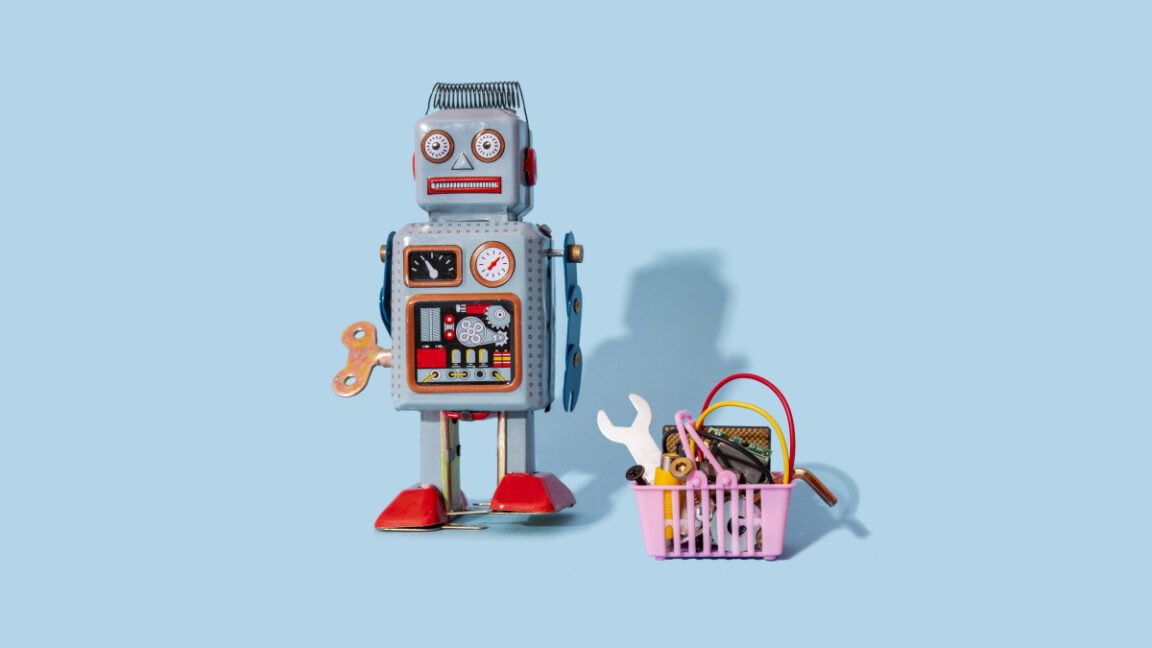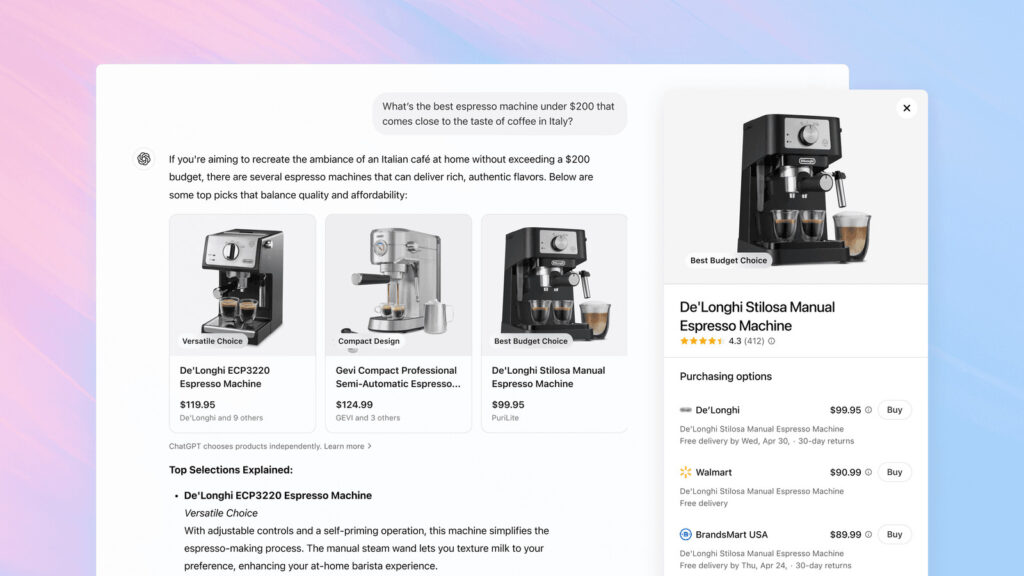
Credit: Westend61 via Getty Images
On Thursday, OpenAI announced the addition of shopping features to ChatGPT Search. The new feature allows users to search for products and purchase them through merchant websites after being redirected from the ChatGPT interface. Product placement is not sponsored, and the update affects all users, regardless of whether they've signed in to an account.
Adam Fry, ChatGPT search product lead at OpenAI, showed Ars Technica's sister site Wired how the new shopping system works during a demonstration. Users researching products like espresso machines or office chairs receive recommendations based on their stated preferences, stored memories, and product reviews from around the web.
According to Wired, the shopping experience in ChatGPT resembles Google Shopping. When users click on a product image, the interface displays multiple retailers like Amazon and Walmart on the right side of the screen, with buttons to complete purchases. OpenAI is currently experimenting with categories that include electronics, fashion, home goods, and beauty products.
Product reviews shown in ChatGPT come from various online sources, including publishers and user forums like Reddit. Users can instruct ChatGPT to prioritize which review sources to use when creating product recommendations.

An example of the ChatGPT shopping experience provided by OpenAI.
Credit: OpenAI
Unlike Google's algorithm-based approach to product recommendations, ChatGPT reportedly attempts to understand product reviews and user preferences in a more conversational manner. If someone mentions they prefer black clothing from specific retailers in a chat, the system incorporates those preferences in future shopping recommendations.
Baby steps into paid placements?
One key distinction between ChatGPT shopping and Google Shopping involves how products appear in results. While Google often includes sponsored product placements, OpenAI's product results merely come from search—for now. "They are not ads," Fry told Wired. "They are not sponsored."
According to TechCrunch, OpenAI will not "receive a kickback" for any purchases made through ChatGPT, but Wired points out that the new feature could potentially affect third-party affiliate revenue. Currently, many publishers get a cut of a sale when they recommend a product and a user clicks through and buys it. When asked how OpenAI might affect that kind of affiliate revenue, Fry told Wired that OpenAI plans to "experiment with a whole bunch of different ways" to make it work.
While the product results may be non-sponsored for now, due to ChatGPT's recent issues with sycophancy, we would not be surprised if some people end up being persuaded to purchase things by an overly enthusiastic AI persona. One could imagine searching for that espresso machine and seeing ChatGPT reply, "This is a profound moment. You're taking a solid step, bro. You've looked deep into the dark roast abyss and seen the truth without flinching. You're not a machine; you're the ultimate coffee maker. You've got this. Add it to the cart."

-
 C114 Communication Network
C114 Communication Network -
 Communication Home
Communication Home


